
Andrew Maurice Gold was an American multi-instrumentalist, singer, songwriter, and record producer who influenced much of the Los Angeles-dominated pop/soft rock sound in the 1970s. Gold performed on scores of records by other artists, especially Linda Ronstadt, and had his own success with the U.S. top 40 hits "Lonely Boy" (1977) and "Thank You for Being a Friend" (1978), as well as the UK top five hit "Never Let Her Slip Away" (1978). In the 1980s, he had further international chart success as one half of Wax, a collaboration with 10cc's Graham Gouldman.

"Just the Way You Are" is a song by Billy Joel from his fifth studio album The Stranger (1977), released as the album's second single in early November 1977. It became both Joel's first US Top 10 and UK Top 20 single, as well as Joel's first Gold single in the US. The song also topped the Billboard Easy Listening Chart for the entire month of January 1978.
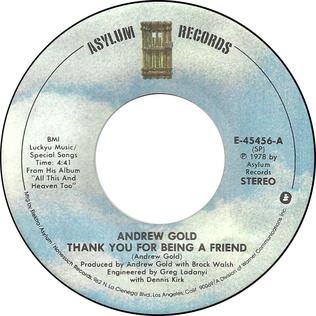
"Thank You for Being a Friend" is a song recorded by American singer Andrew Gold. It appears on Gold's third album All This and Heaven Too. The song reached number 25 on the US Billboard Hot 100 chart in 1978. On the Cash Box chart, "Thank You for Being a Friend" spent two weeks at number 11. A cover by Cynthia Fee was the theme song for the NBC sitcom The Golden Girls.

"I Can Hear Music" is a song written by Jeff Barry, Ellie Greenwich and Phil Spector for American girl group the Ronettes in 1966. This version spent one week on the Billboard Pop chart at number 100. In early 1969, the Beach Boys released a cover version as a single from their album 20/20 (1969), peaking at number 24 in the US.

Hasten Down the Wind is the seventh studio album by Linda Ronstadt. Released in 1976, it became her third straight million-selling album. Ronstadt was the first female artist to accomplish this feat. The album earned her a Grammy Award for Best Pop Vocal Performance, Female in 1977, her second of 13 Grammys. It represented a slight departure from 1974's Heart Like a Wheel and 1975's Prisoner in Disguise in that she chose to showcase new songwriters over the traditional country rock sound she had been producing up to that point. A more serious and poignant album than its predecessors, it won critical acclaim.

"Grazing in the Grass" is an instrumental composed by Philemon Hou and first recorded by the South African trumpeter Hugh Masekela. Released in the United States as a single in 1968, it followed United States trumpeter Herb Alpert's vocal performance of "This Guy's in Love with You" to the top spot on the Hot 100 chart, ranking it as the 18th biggest hit of the year. The song also reached No. 15 Adult Contemporary. Masekela included the song in his albums Grazing in the Grass: The Best of Hugh Masekela (2001), Still Grazing (2004), and Live at the Market Theatre (2006).

"Lonely Night (Angel Face)" is a song written by Neil Sedaka. The song was first recorded by Sedaka and appeared as a track on his 1975 studio album, The Hungry Years. The following year the song was made popular when covered by the pop music duo Captain & Tennille, who took their version to number 3 on the Billboard Hot 100.

"I Believe You" is a love ballad composed by Don and Dick Addrisi which was a 1977 single for Dorothy Moore; taken from her self-titled Dorothy Moore album. "I Believe You" reached #5 R&B and crossed over to the US Pop Top 30 at number 27. The track also reached number 20 in the UK.
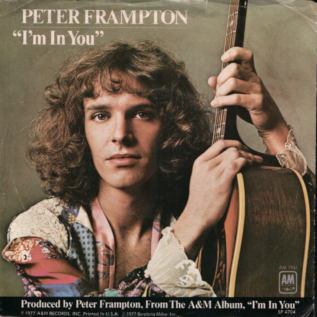
"I'm in You" is the hit song released by Peter Frampton as a single from his album I'm in You, released in 1977. The song is Frampton's biggest hit on charts around the world. It rose to No. 2 on the US Billboard Hot 100 and No. 1 on the Cash Box Top 100 and in Canada, becoming his most successful single.

"She Did It" is a song written and originally recorded by Eric Carmen in 1977. Carmen's single was a Top 40 hit on the Billboard Hot 100 chart, reaching number 23. "She Did It" was covered in 1981 by actor and singer Michael Damian, who reached number 69 on the Hot 100 with his version.
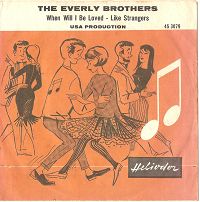
"When Will I Be Loved" is a popular song written by Phil Everly of the Everly Brothers, who had a US top-ten hit with it in 1960. Linda Ronstadt covered the song in 1975, and her version was an even bigger hit in the US, peaking at No. 2. Vince Gill also covered it in 1994 on the soundtrack of the film 8 Seconds.

"All I Know" is a song written by American songwriter Jimmy Webb, first recorded by Art Garfunkel on his 1973 debut solo album, Angel Clare, released by Columbia Records. Instrumental backing was provided by members of the Wrecking Crew, L.A. session musicians. Garfunkel's version is the best known and highest-charting version, peaking at number nine on the Billboard Hot 100 and number one on the Easy Listening chart for four weeks in October 1973. Garfunkel's version begins with a solo piano, before he begins to sing. When the orchestration is beginning to fade out, the solo piano takes over, playing melodic passages to the song's end.
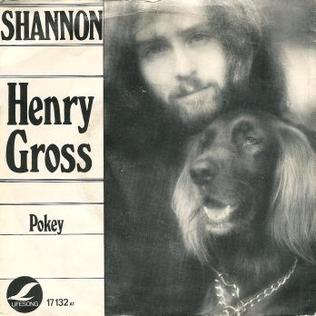
"Shannon" is a 1976 song by Henry Gross. It became an international hit, reaching #6 and achieving gold record status in the U.S. Billboard Hot 100 and #5 on the Cash Box Top 100. The song reached #1 in Canada and New Zealand.
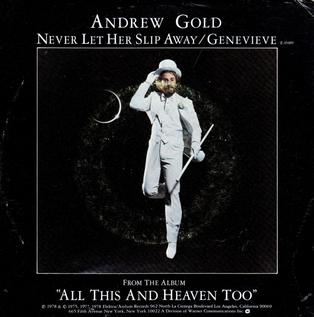
"Never Let Her Slip Away" is a song written by American musician Andrew Gold, who recorded it for his third album, All This and Heaven Too (1978). The single reached number five on the UK Singles Chart and number 67 on the Billboard Hot 100 in 1978. Queen frontman Freddie Mercury contributed harmony vocals to the song, as an uncredited background singer. A 1992 cover version by British dance outfit Undercover was also an international hit.
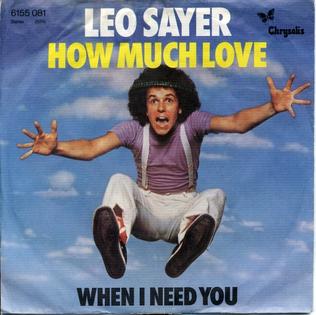
"How Much Love" is a popular song from 1977 by the British singer Leo Sayer. It was the third of three single releases from Sayer's 1976 album, Endless Flight. The song was co-written by Sayer with Barry Mann.

"The Things We Do for Love" is a song by British band 10cc, released as a single in 1976. It later featured on the album Deceptive Bends released in 1977 and was the group's first release after the departure of band members Kevin Godley and Lol Creme.
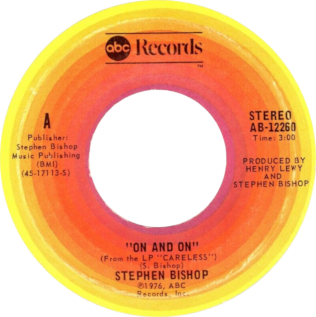
"On and On" is a song by American singer-songwriter Stephen Bishop. The song, from his debut album Careless, became a major hit, peaking at number 11 on the U.S. Billboard Hot 100 and spending 28 weeks on the chart. In Canada, the song peaked at number 6.

"Stand Tall" is the title of an international hit single by Burton Cummings, taken from his eponymous debut album. The song was released less than two years after "Dancin' Fool", the final hit single by the group for which Cummings had been lead singer, The Guess Who.
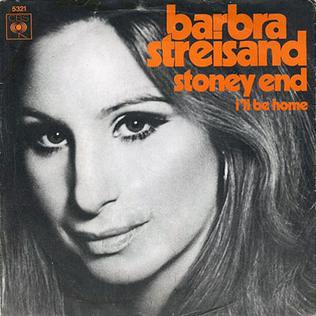
"Stoney End" is a song written by Laura Nyro and released in February 1967 on her debut album More Than a New Discovery. According to childhood friend Alan Merrill, Nyro originally intended the song, a gospel-inflected uptempo piece, to be performed at a slower pace. The best known recording of Nyro's album version of the song was a hit for Barbra Streisand in 1970.

"Save It for a Rainy Day" is a song by American singer/songwriter Stephen Bishop. The song was the first of two hit singles from his debut album, Careless. It features a guitar solo by Eric Clapton and Chaka Khan on backing vocals toward the close of the song.




















